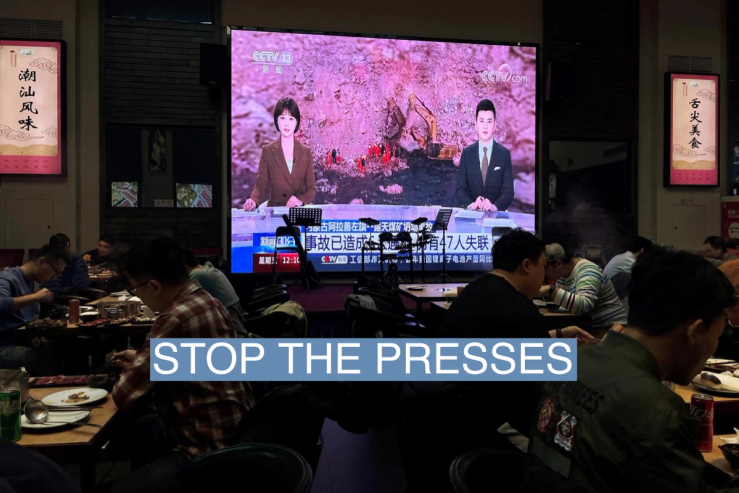The News
Foreign journalists in China had a “tough and draining” year in 2022, with harassment against them peaking during the 2022 Winter Olympics and the historic Communist Party Congress, according to a new survey by the Foreign Correspondents’ Club of China.
Around 100 correspondents responded to the survey which noted that stringent zero-COVID protocols, coupled with intimidation by authorities and visa delays, further “battered” the morale of many international bureaus.
Here’s a snapshot of the survey’s findings:
- 57% of respondents said they had been followed during field reporting.
- 38% said at least one of their sources had been harassed, detained, or questioned by authorities, up from 25% in 2021.
- 56% said they were obstructed by police or other officials at least once, down from 62% in 2021.
- 31% said they had to cancel a work trip or interview at least once because of pressure from officials.
- 70% said conditions did not meet international reporting standards at all during the Winter Olympics.
- 6% of respondents who covered the Party Congress said they weren’t granted access to any of the events they applied for.
- 45% said they their Chinese colleague(s) were pressured, harassed, or intimidated at least once, up from 40% in 2021.
- 47% said they were unable to travel because of their health code, a government-run system controlling people’s movements based on suspected exposure to COVID.
- 46% said they were forced to leave a place or denied access based on COVID protocols despite presenting no health risks.
In this article:
Know More
Journalists “were frequently tailed and manhandled” by officials while trying to report outside Olympic venues last year, the FCCC said. After one reporter complained about it on social media, a foreign ministry handler asked them to clarify that it had been a misunderstanding, but the reporter refused, according to the FCCC.
Besides physical harassment, the report said that online trolling and state media-sponsored op-ed attacks became even more pervasive against foreign journalists, with 25% of respondents reporting some sort of digital harassment, up from 18% in 2021.
“I have had to block thousands of government-sponsored trolls and other nationalist troll accounts which have attacked me on social media,” the BBC’s Stephen McDonell told FCC China.
It was also harder for journalists to enter China. At least 56% of bureaus said their reporters were yet to receive J-1 visas last year, and many believed geopolitical tensions were to blame for the delays.
Step Back
“China continues to be one of the most important stories of our time, yet since the start of the global pandemic in 2020, press freedoms across the country have declined at an accelerated pace, and it remains to be seen if they will recover,” the FCCC said in a statement.
Videos and firsthand accounts of press harassment have heightened concerns. In February, a video of a Dutch journalist interrupted by police during a live broadcast quickly went viral on Western social media.
More recently, a BBC journalist was arrested and beaten while covering the anti-lockdown protests in November. The BBC later said that Chinese officials said they had detained him for his own safety, citing concerns he might catch COVID while interacting with protestors.
The View From the Chinese government
When asked about concerns of press freedom ahead of the 2022 Winter Olympics, Ministry of Foreign Affairs spokesperson Wang Wenbin said that China would protect the rights of foreign journalists, so long as they followed reporting guidelines and avoided controversial commentary.
“The reporting environment for foreign media in China is open, and they are free to report on the Winter Olympics and related matters. China is a country ruled by law,” Wang said at the time. “We welcome the media to pay attention to and report on the Beijing Winter Olympics, and welcome the constructive opinions of the media. But we oppose distorting facts in the name of so-called ‘press freedom’ and discrediting China and the Beijing Winter Olympics.”


